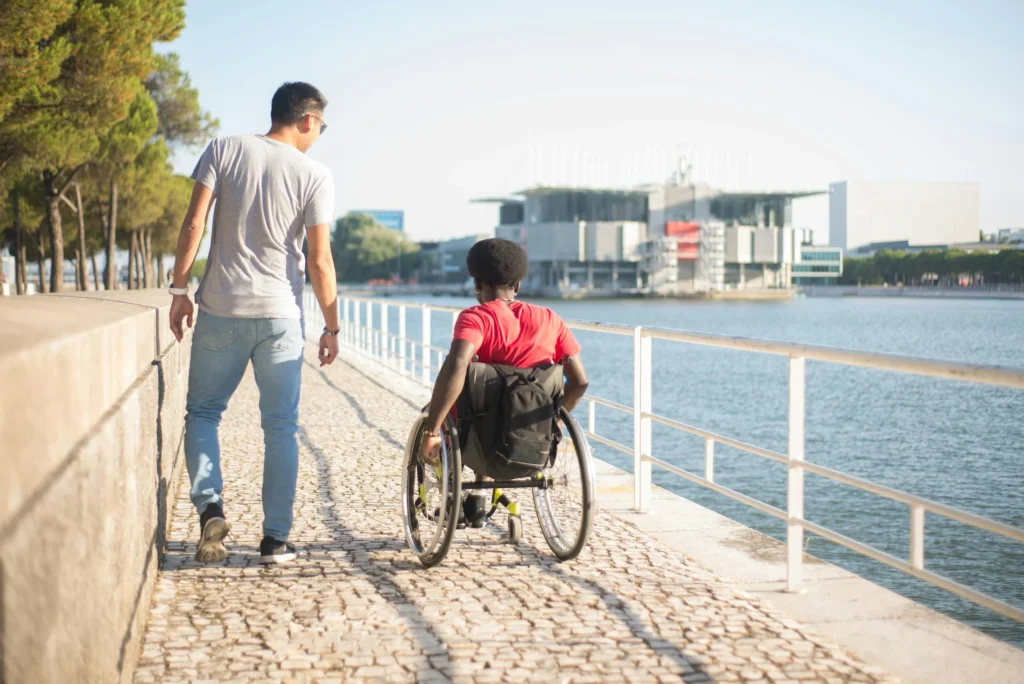
A new roundup of Walkability Wins. This week we’re showcasing the movement by highlighting more places across the country advancing pedestrian-friendly agendas.
San Francisco, California
When San Francisco’s Public Works proposed to cut down all 78 trees on 24th Street between Mission Street and Potrero Avenue in 2019, the community banded together and formed a volunteer group called Mission Verde. Every week for three years, Mission Verde volunteers hand water newly planted trees along the 24th Street corridor. This has freed up 2/3 of the City’s dedicated tree planting funding for this area and enabled the planting of 3x as many trees throughout this Cultural District. In doing so, they have beautified these public rights of way, strengthened the community and brought more people to the Mission District sidewalks.
Thanks to Mission Verde for this win!
Medford, Massachusetts
Recently the mayor and traffic engineer of Medford stopped a longstanding practice of allowing residents to park their vehicles on the sidewalk adjacent to a local park and on the “walk to school” route for a local elementary school. The traffic engineer designed a plan for alternating assigned street parking, which will also serve as a traffic calming effect and will be painted this spring. In the meantime, signs have been posted, residents notified, and the change has been made signaling a larger cultural change in our city from our top administration in favor of pedestrian and child safety over parking preferences.
Thank you to WalkMedford for this win!
Washington D.C.
A service lane on Connecticut Avenue that used to have 14 parking spaces, was closed during COVID and became a pedestrian-only space. Restaurants immediately used it as an outdoor seating space, farmers markets and art pop-ups. The District Department of Transportation announced in 2023 it would continue the service lane closed to cars. They started construction to make the curb ramps more accessible, meeting ADA standards. Now the transformation is complete and this service lane has been turned into what is now called the Cleveland Park promenade.
Thanks to Yvonne for this win!
Chattanooga, Tennessee
Chattanooga plans to use a federal grant to enhance pedestrian safety and reconnect communities! The initiative focuses on reuniting the Westside neighborhood through a $2 million planning grant aiming to address isolation induced by US-27 and Riverfront Parkway. These major roadways divide neighborhoods and the Westside Evolve’s plan recommends two crucial street connections as well as street improvements.This initiative includes feasibility studies, street improvements, and a long-term vision to integrate the neighborhood with downtown areas.
Atlanta, Georgia
The Atlanta City Council passed legislation to remove the minimum parking requirements in the BeltLine Overlay District, aiming to encourage alternative transportation and enhance mobility, sustainability, and creating a more walkable, bikeable, and transit-friendly city. The move complements existing ordinances designed to reduce pedestrian injuries and fatalities, such as ordinances that prohibit new drive-thrus, drive-ins, and service stations. The move reflects a commitment to reducing pedestrian injuries and deaths, addressing the increasing trend in pedestrian fatalities in Georgia.
To catch up on previous installments of Walkability Wins, visit our blog. Have a win? Send it to us: social@americawalks.org.